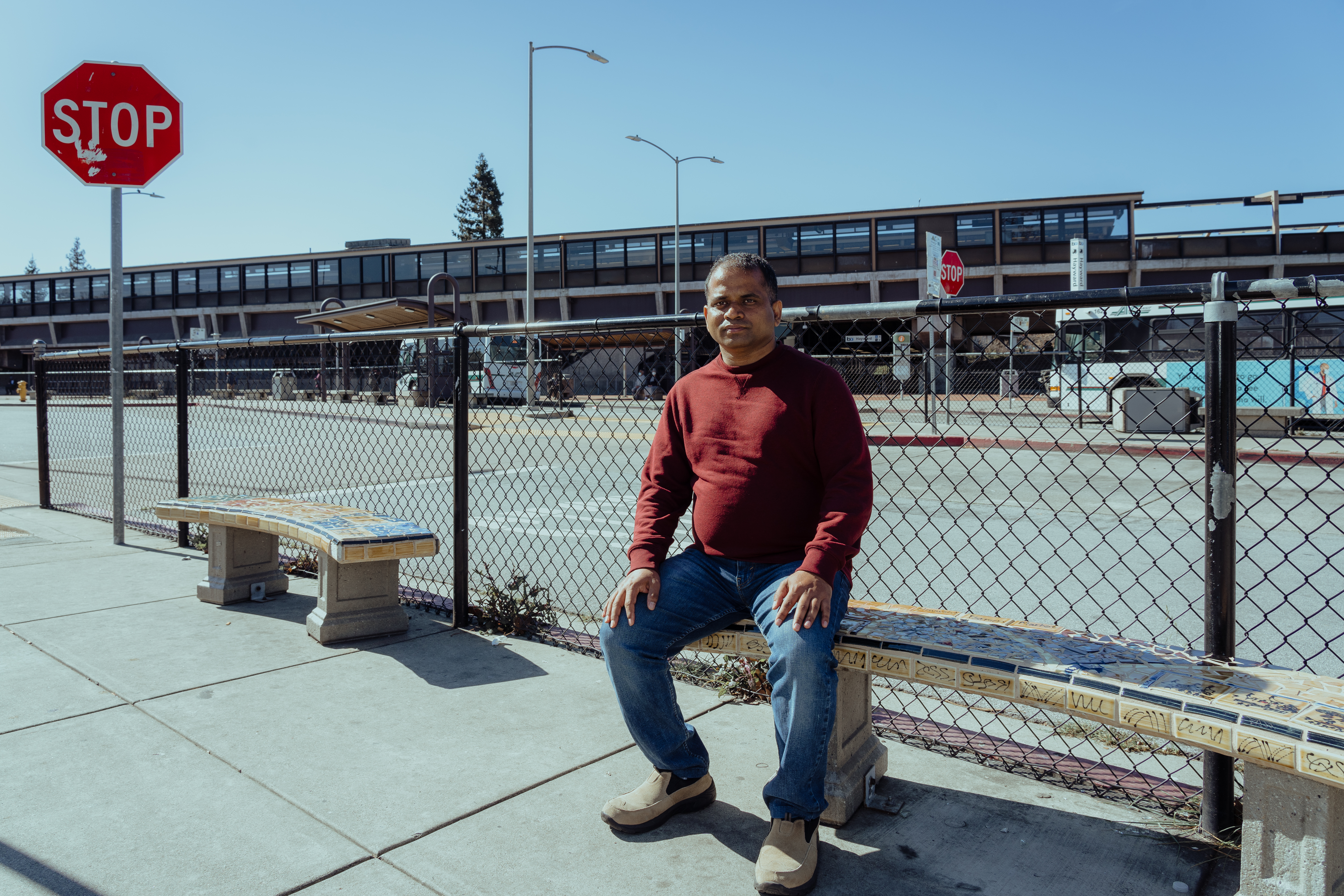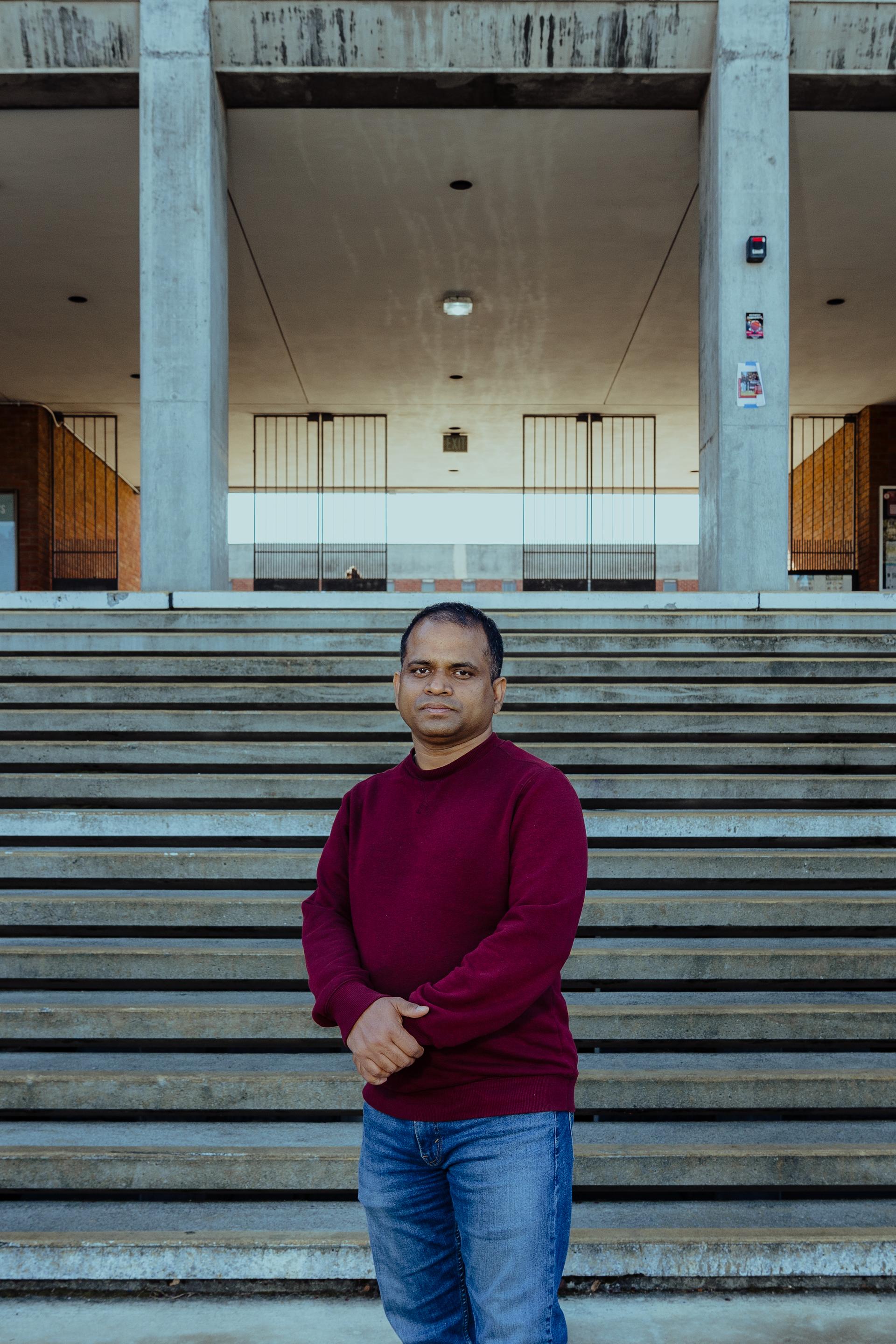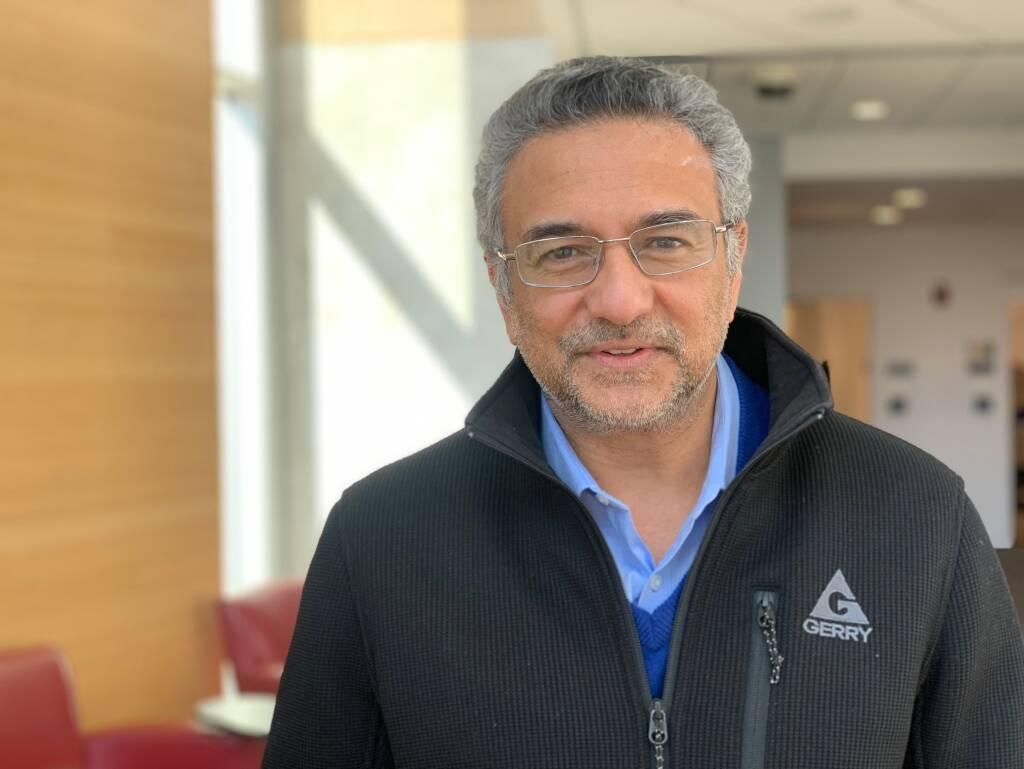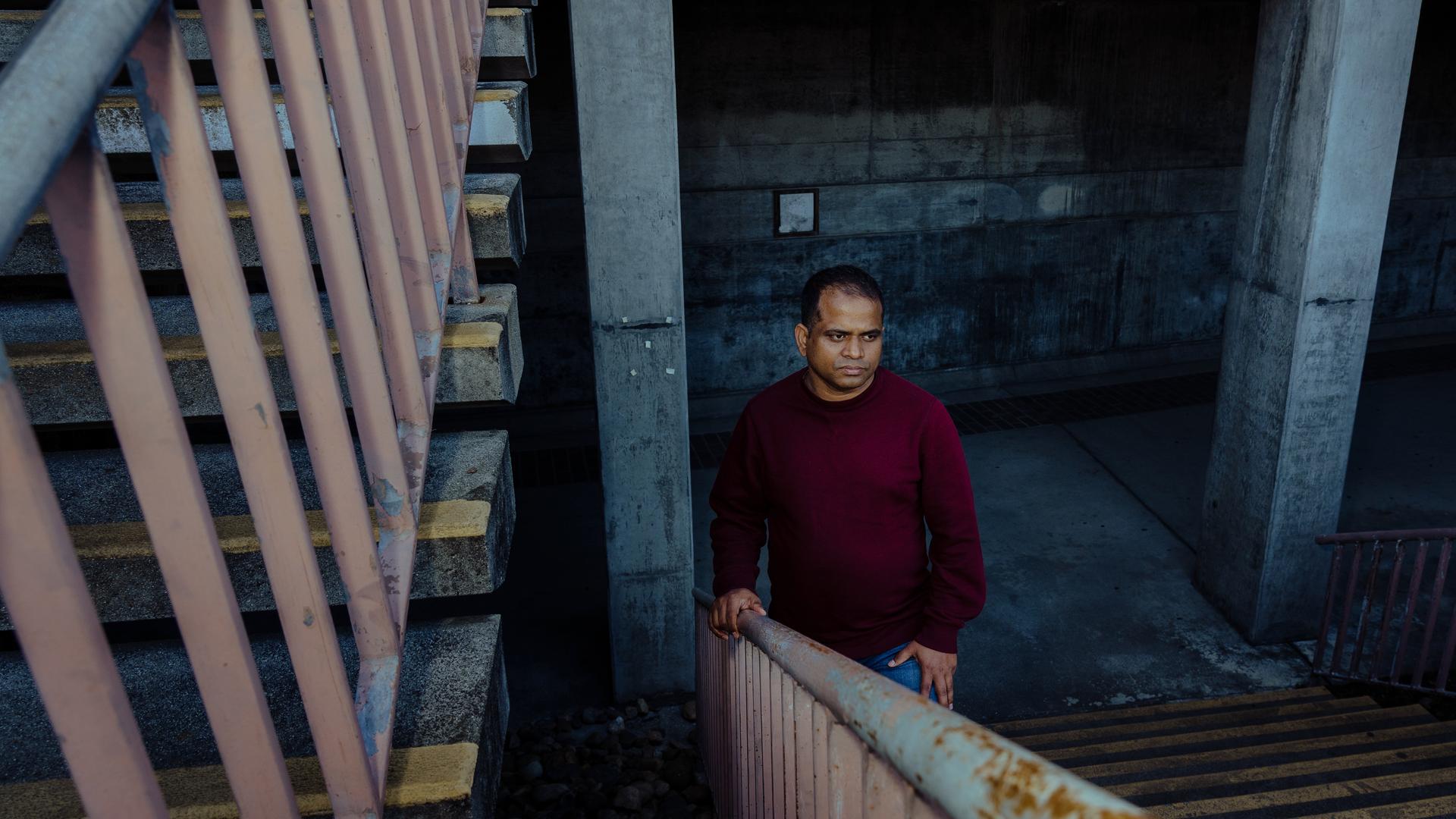When Manpreet was studying psychology at California State University, Sacramento, she said that she used a fake last name on campus — she feared that her real last name would reveal her caste.
But eventually, Manpreet’s classmates learned that she worshipped with Dalits or “untouchables,” and they shut her out.
“Eventually, I wasn’t really part of their group. I wasn’t invited to study sessions or lunches or hangouts and I felt very isolated.”
“Eventually, I wasn’t really part of their group. I wasn’t invited to study sessions or lunches or hangouts and I felt very isolated,” said Manpreet, who asked to use only her first name because she said that she’s been threatened for speaking out.
Related: Echoing WWII rescue efforts, ethnic Russian researchers in the US support Ukrainian scholars
In Hinduism, caste is the ranking of a person’s social status, handed down at birth. Because it perpetuates discrimination, it was outlawed decades ago across South Asia. Still, the practice hasn’t gone away — and it has found its way to the US, and onto American campuses. There’s now a growing movement among universities to ban caste-based discrimination.
Earlier this year, the entire Cal State system, with nearly half a million students across 23 campuses, added caste to its nondiscrimination policy. It follows Brandeis University in 2019, then the University of California, Davis, Colby College and the graduate students’ union at Harvard University. Advocates predict more colleges will soon adopt similar policies.
Only China sends more international students to US colleges than India, nearly 168,000. Another 11,000 come from Nepal, the world’s other Hindu-majority country.
Low-caste students from India report bullying and verbal and physical assaults at postsecondary schools nationwide; a survey by Equality Labs, a South Asian human rights group, found one-third of Dalit students in the US reported experiencing caste discrimination.
It’s much worse in India. That’s because those considered untouchables face a lifetime of discrimination. The jobs they can hold, whom they can marry and often, the schools they can attend are dictated by caste.
Prem Pariyar, who studied social work at California State University, East Bay, whose last name identifies him as an “untouchable” or Dalit, said that he, like Manpreet, was shunned at school because of his low caste.
“I could use the dominant caste surname. But this is not the solution. I need to speak up. I need to educate people about this caste discrimination.”
“I could use the dominant caste surname” or an alias, explained Pariyar, who graduated in spring of 2020. “But this is not the solution. I need to speak up. I need to educate people about this caste discrimination.”
That’s why he lobbied to ban caste discrimination on campus.

“In the beginning, I was not comfortable,” said Pariyar, who feared revealing his identity.
At first, it was hard to get people to grasp, he said: “Caste is never recognized in the US because the dominant scholars come from the dominant caste and they have the dominant role, so this real problem is never recognized.”
Related: Multilingual liaisons are ‘cultural brokers’ for refugee students in this Vermont school district
Larry Simon teachers international development at Brandeis University in Waltham, Massachusetts. He had worked in South Asia, where, he said, caste is prevalent.
“When I came to Brandeis then, I thought that caste should be something that we take [a] look at in our curriculum and take a look at in terms of the student experience.”

While some of his students reported facing caste-based discrimination, Simon found that “caste in America has been a hidden discrimination for many, many years.”
In 2019, Simon led Brandeis in becoming the first college in the US to ban caste discrimination. Since then, he said, the country’s racial reckoning has further sensitized Americans to the issue.
“But it’s still a learning curve for many because most administrators and most faculty are completely unaware,” he said.
Still, there are Indian Americans who deny that caste-based discrimination exists in the US.
“If we can’t see it, it doesn’t exist,” said Rajesh Sampath, who teaches courses on global ethics and human rights at Brandeis.
Related: Colorado joins handful of states that give financial aid to undocumented college students
His ancestors come from a low caste of laborers, or Shudras.
Indian Americans “take the good parts of what they bring to the United States and maybe repress or exclude the darker side of a narrative,” Sampath said. “Caste is a reality that can’t be denied.”
Critics like Suhag Shukla, the executive director of the Hindu American Foundation, say that the importance of caste is overblown.
“I know, as a second-generation Hindu American, that I was not aware of my caste until my ninth grade teacher in world history asked me about it.”
“I know, as a second-generation Hindu American, that I was not aware of my caste until my ninth grade teacher in world history asked me about it.”
She said that she would not self-identify her caste, saying that the question itself is “deeply offensive.”
Shukla opposes what colleges are doing: “Caste is not the central way of identifying what these policies are presuming. They’re essentially institutionalizing a false stereotype about Indian Americans.”
And she said that neither Cal State nor Brandeis, as far as she can tell, have reported a single complaint about caste bias.
She pointed to a recent survey conducted by the Carnegie Endowment for International Peace that finds only 5% of Indian Americans who reported having faced discrimination said caste was a major factor in their experience.
“Some of the examples that I’ve read in the media are, ‘Well, someone looked me up and down.’ Could there be discriminatory intent there or prejudice? Absolutely,” she said. “We need to talk to all the people involved just in the way that any other claim of discrimination would be investigated.”
Cal State graduate Manpreet, also a 2020 graduate and now out in the working world, said that she’s faced caste discrimination on the job.

Her skin color, too, she claims, is tied into the issues that she’s experienced in and out of school.
“I do have light skin privilege and people just assume that I am dominant caste, which probably has worked in my favor, but, you know, people catch on really quick.”
Banning caste discrimination on campus, she said, acknowledges the problem, but “this isn’t really getting at the root of how do we actually abolish caste and create an environment that is safe and also supportive of Dalit students,” she said.
She said that there will only be real change when other Hindus see people from lower castes as equals.
An earlier version of this story appeared on GBH News here.
